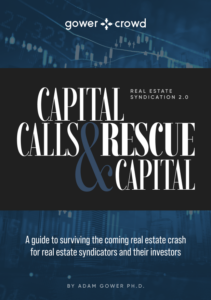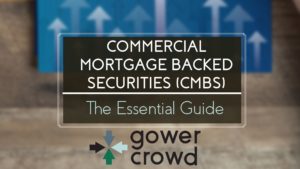10 Mistakes Real Estate Investors Make
Real estate can be an exciting investment. Many individuals hoping to get involved with real estate enjoy the prospect in their heads. While real estate can be an excellent investment, there are a number of mistakes and misconceptions that should be avoided in order to realize the best results long term. When investing in real estate, it's essential to understand the common pitfalls that real estate investors face in order to avoid falling into them yourself.
10 Mistakes Real Estate Investors Make
Some of the mistakes individuals make while investing may seem relatively straightforward. That said, if they weren't common mistakes, it wouldn't be essential to cover them. From a general lack of knowledge on the topic of real estate to not thinking far enough in advance about your plans, we've put together some of the most frequent mistakes investors make when beginning involvement with real estate.
Lack of Knowledge About Real Estate Investing
While it is easy to understand the process of real estate investing from the outside looking in, the process is actually quite complex with many moving parts. Real estate is typically regulated by strict rules and regulations. Thus, it's quite essential to do your homework as it relates to making informed decisions for your investments.
Even more than just having a plan in place, you must have the free time to focus on putting your plan into action. Doing so may be difficult if you're stuck on the difficult task of crowdfunding for your business venture.
Are you looking to work with experienced professionals when crowdfunding for your real estate project? Contact GowerCrowd today to learn more about how you can put your capital raising efforts on autopilot.
Not Understanding Cash Flow
When acquiring properties, investors often forget that this requires them to maintain and keep the property in prime condition. No one else is going to do this for them after all! Real estate investors need to keep enough cash on hand to cover the cost of any emergency damages etc. There is also the consideration of hiring a property manager who will (most likely) need to be heartily compensated for their time.
Investors should also take into account important considerations, such as the fact that they must cover all costs if a property goes unrented for a month or many months. There are many and multiple costs that should be taken into consideration before moving forward with a real estate purchase, including those costs associated with closing costs, commissions, carrying costs, and more.
Not looking At More Properties
No matter the end goal or purpose of the property you're looking at, real estate investors by far too frequently become attached to the first property they see. Investors will often become attached to the first property they see because they don't know what else is out there or because they're altogether lazy. Make sure to take a look at multiple properties to make sure your choice is the right one, at a price that makes the most financial sense for your situation.
Not Planning Your Financial Goals Properly
After you've financially analyzed the property, what it's worth, and what it's worth to you, your job isn't over. It would be best if you put a plan in place that accurately reflects what you expect in return from your investment. This is known as the time vs. money concept, because generally the more you have of one, the less you need of the other in order to reach your end financial goals.
Related: 7 Steps To Raising Equity Online
Trying To Get Rich Quick
Contrary to popular belief, there is no "get rich quick" hack in real estate investing. While it may be nice to romanticize the idea of getting rich overnight, this is not how it works. Thus, it's essential to remain persistent and patient as you seek to realize maximum return on investment. Investors will need to be able to do their homework on keeping up to date with the real estate market in order to see sizable enough returns in the long run for the process to be "worth it."
Overspending On Investments
One of the biggest reasons that real estate investments don't result in a return is the fact that the property was purchased for too high of a price in the first place. After purchase, money is handed over in a way that the financial outlook is locked into place, no matter how good or bad of a deal you purchased the property. No matter how hard you work, in profitable markets and in bad, the price you paid is the price you will have to deal with long term. Conducting solid research or consulting with a professional is the best way to avoid scenarios of overpaying.
Not Thinking Big
Real estate investing will likely begin small and increases as you become more experienced and familiar with the process and landscape. That said, completing one deal at a time is not the way to make the quickest or the most considerable amount of money. Make sure to put an efficient process in place with regard to finding, funding, purchasing, and selling properties as is appropriate.
Purchasing In The Wrong Area
The area in which a property is located is just as, if not more important, than the actual property itself. Some locations will never have an issue turning or selling real estate, while with other places, you may face a bit more difficulty. Make sure to do your research on local information such as crime rates, school quality, and local attractions that could all help or hurt the long-term value of your property.
Better Deal Syndrome
Opposite of the issue of investors buying the first property they see, investors may have too high of expectations for their properties as well. When investors consistently operate under the impression that a better property may be just around the corner, it can lead to severe inefficiency.
Getting The Wrong Real Estate Agent
One of the most important parts of the process is choosing a quality real estate agent. Without this being done correctly, individuals may find that any of the problems on this list may become apparent, even if you didn't make a mistake yourself. Pick an agent who has many years worth of experience in the field to ensure that you're getting the best deals possible.
Are you looking for advice on how to start crowdfunding capital for your next real estate project? Contact GowerCrowd for more information on how our services can help you!
Getting Started On Your Real Estate Journey
Real estate investment can be a lucrative area of business to dabble with. If the proper precautions aren’t taken, investors run the risk of entering financially compromised situations that could affect them for many years to come. Working with a professional such as GowerCrowd could be an essential step in the process of freeing up the time and resources that you’d otherwise be devoting to potentially fruitless crowdfunding opportunities for your projects. Call or email GowerCrowd today to see how they can be of assistance to your on your real estate journey.
If you liked this article and would like to learn more about raising capital for real estate investing, check out some of the resources below:
If you have only just started in real estate development, have completed no deals, have no email list, but know you want the freedom and wealth being a real estate developer brings, then I suggest your first step is to start evaluating deals so you can recognize a good one when you see it.
Here’s where you should start. You’ll learn everything you need to know – the different types of real estate, different development strategies, how real estate cycles influence the market, and all about due diligence.
If you want to find deals and raise money for them so you can start your real estate development business, then learning how to conduct due diligence so you can pitch your deals better to investors is a great place to start.
If you’ve already purchased one or more real estate project and are seeing more opportunities than you can finance, then now is the time to start building your investor network so you can finance all your next deals quicker.
You’ve already got some momentum; now start finding and educating prospects about what you’re doing so you can build an email list of people to pitch to when you’re ready to raise money for your next deal.
This is what we build for private clients all the time – it’s called the Investor Acquisition System and you can access the entire program right here so you can find prospects, and convert them into being deep pocketed, repeat investors in your deals.
If you are a seasoned pro with multi-cycle experience, a substantial portfolio, a decent deal pipeline, and find yourself spending too much time raising equity capital because you’re still doing it in-person, then it’s time you put technology to work for you.
The wonderful thing about doing this is that you’re not going to be doing anything different than you’re already doing and, guess what, you’ll never have to sit through investor meetings again.
Sounds crazy I know, but I lay the whole thing out for you in this white board workshop where I personally show you exactly what it takes for you to transform your equity raising into a fully automated, capital raising machine so you can find new investors while increasing commitments from your existing network.
RELATED ARTICLES





